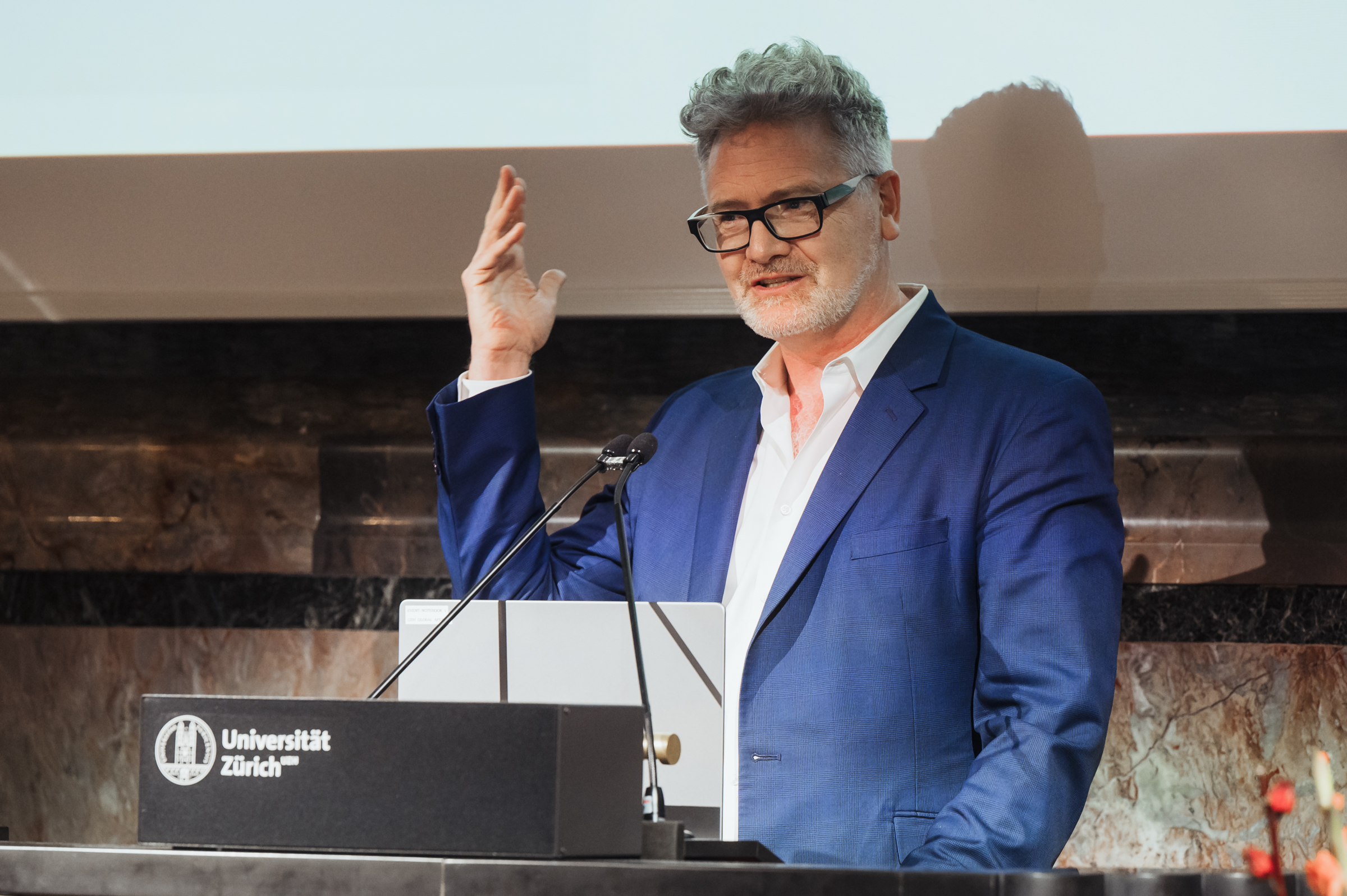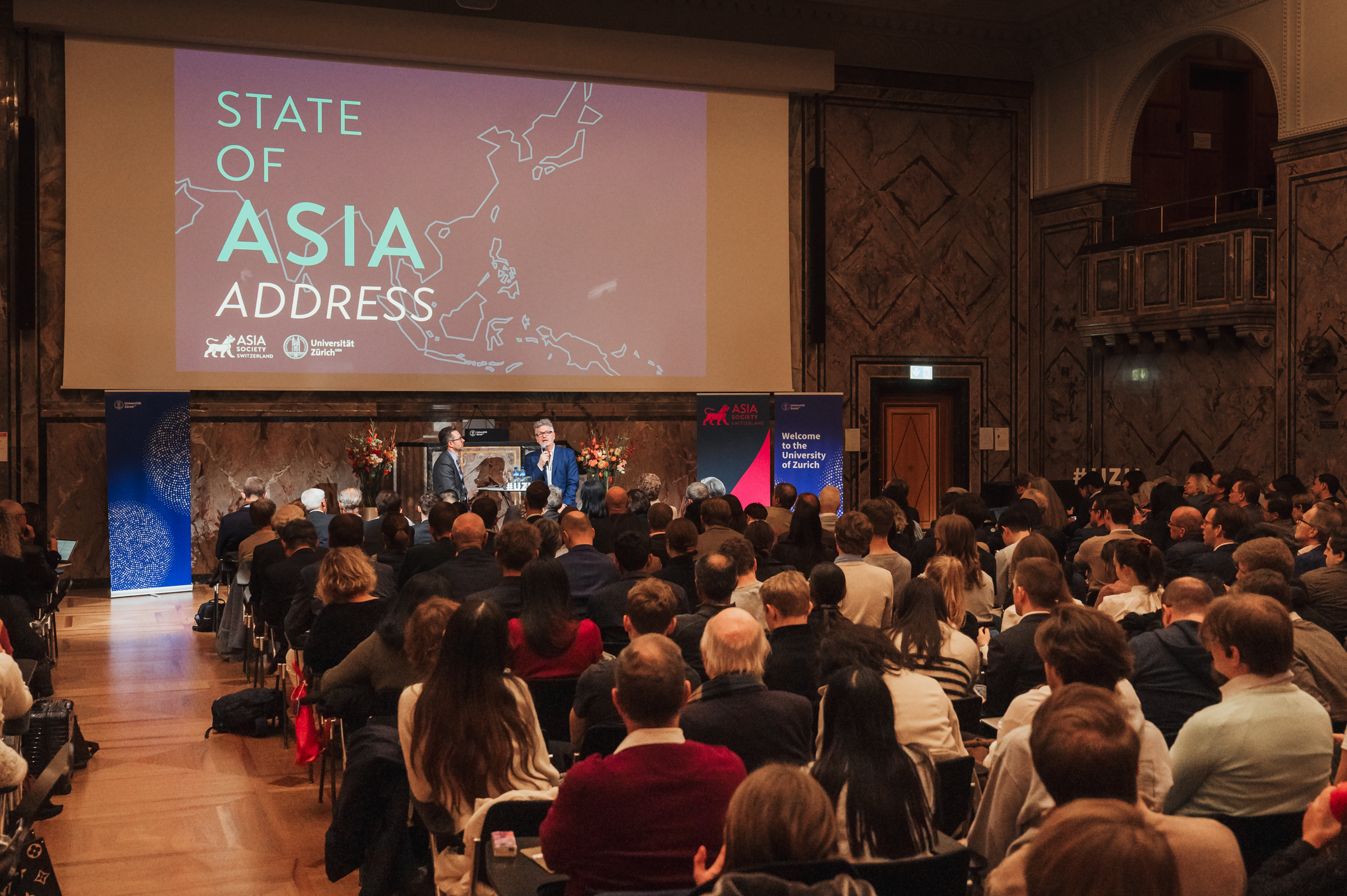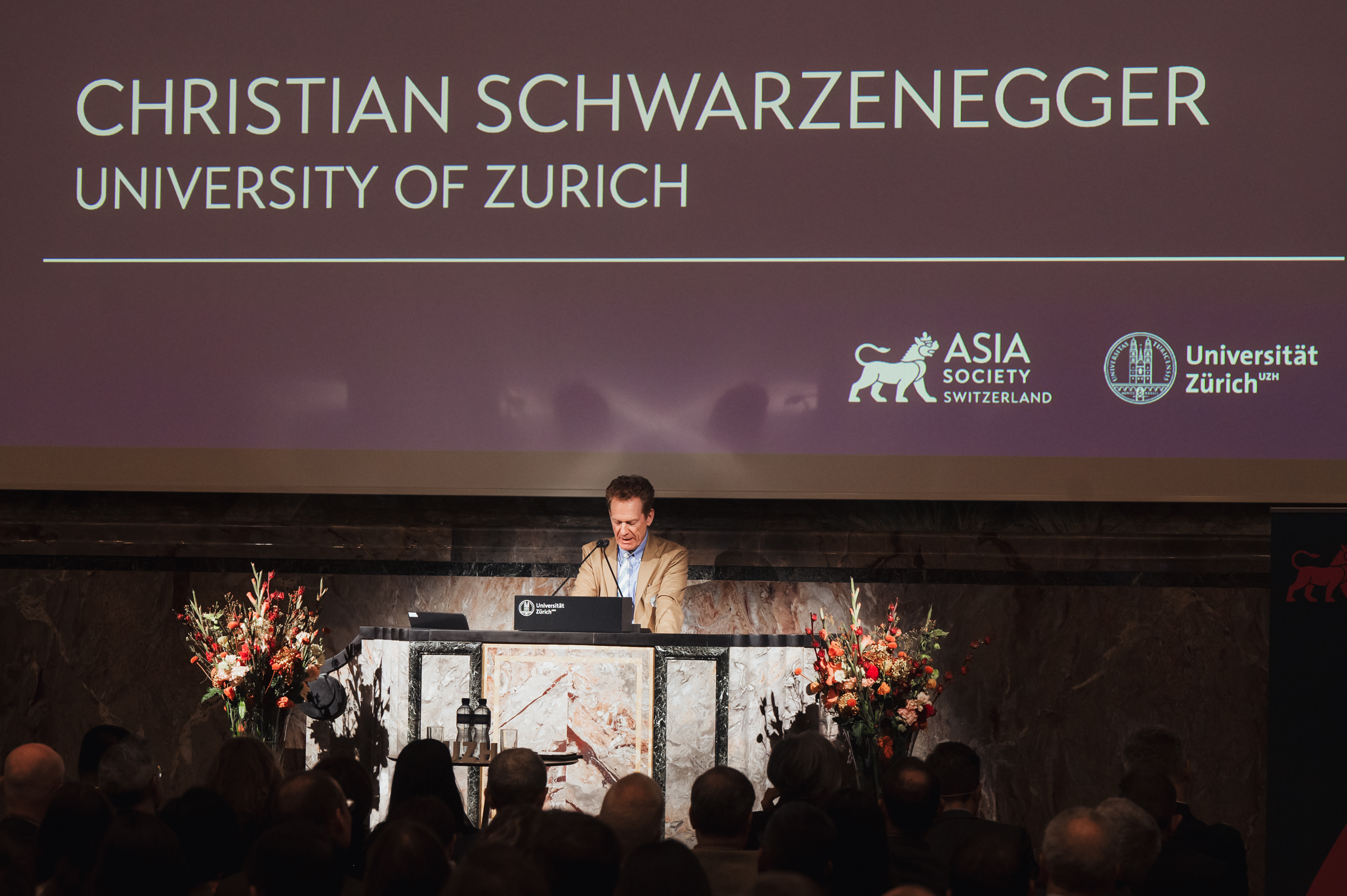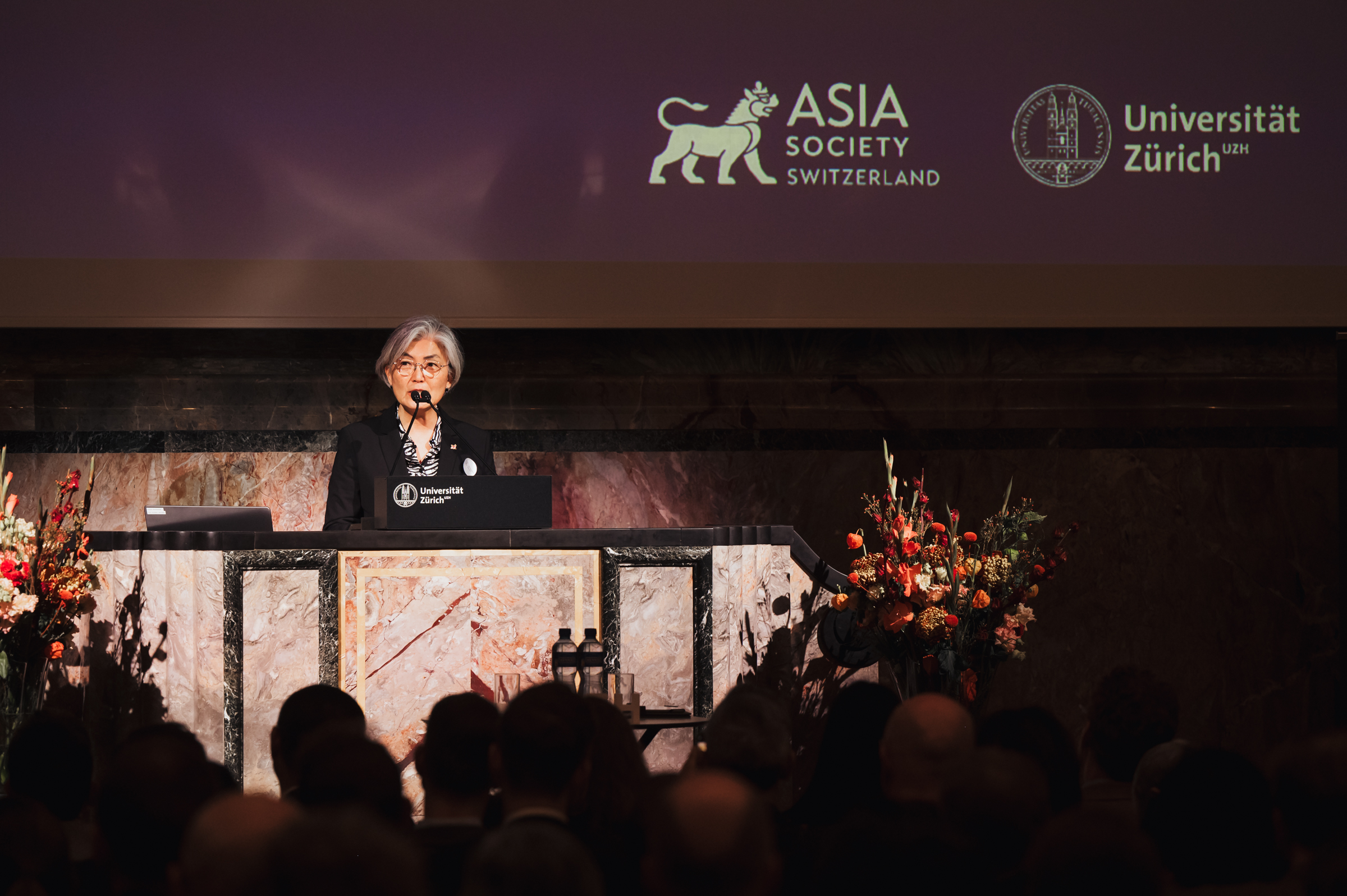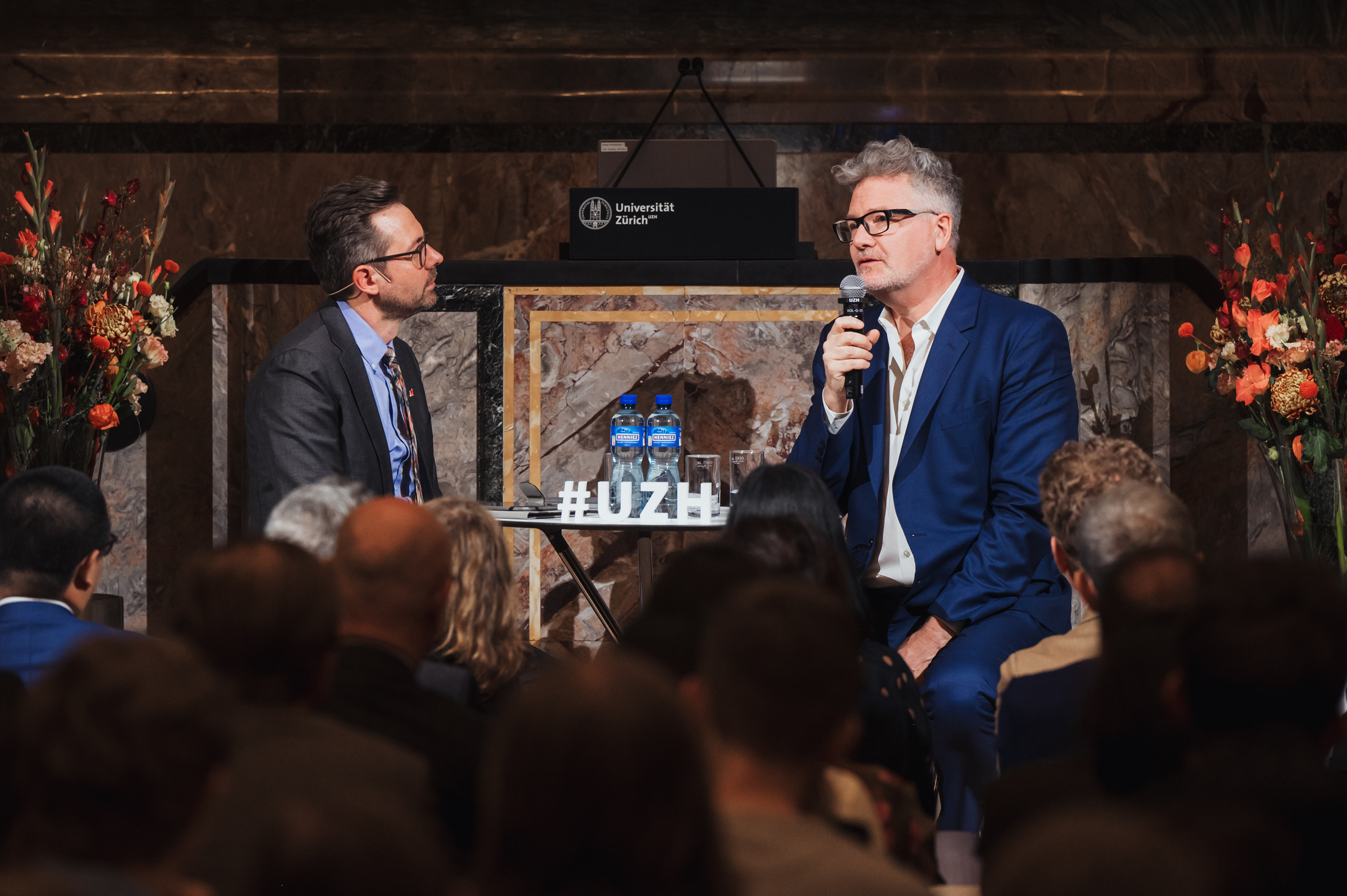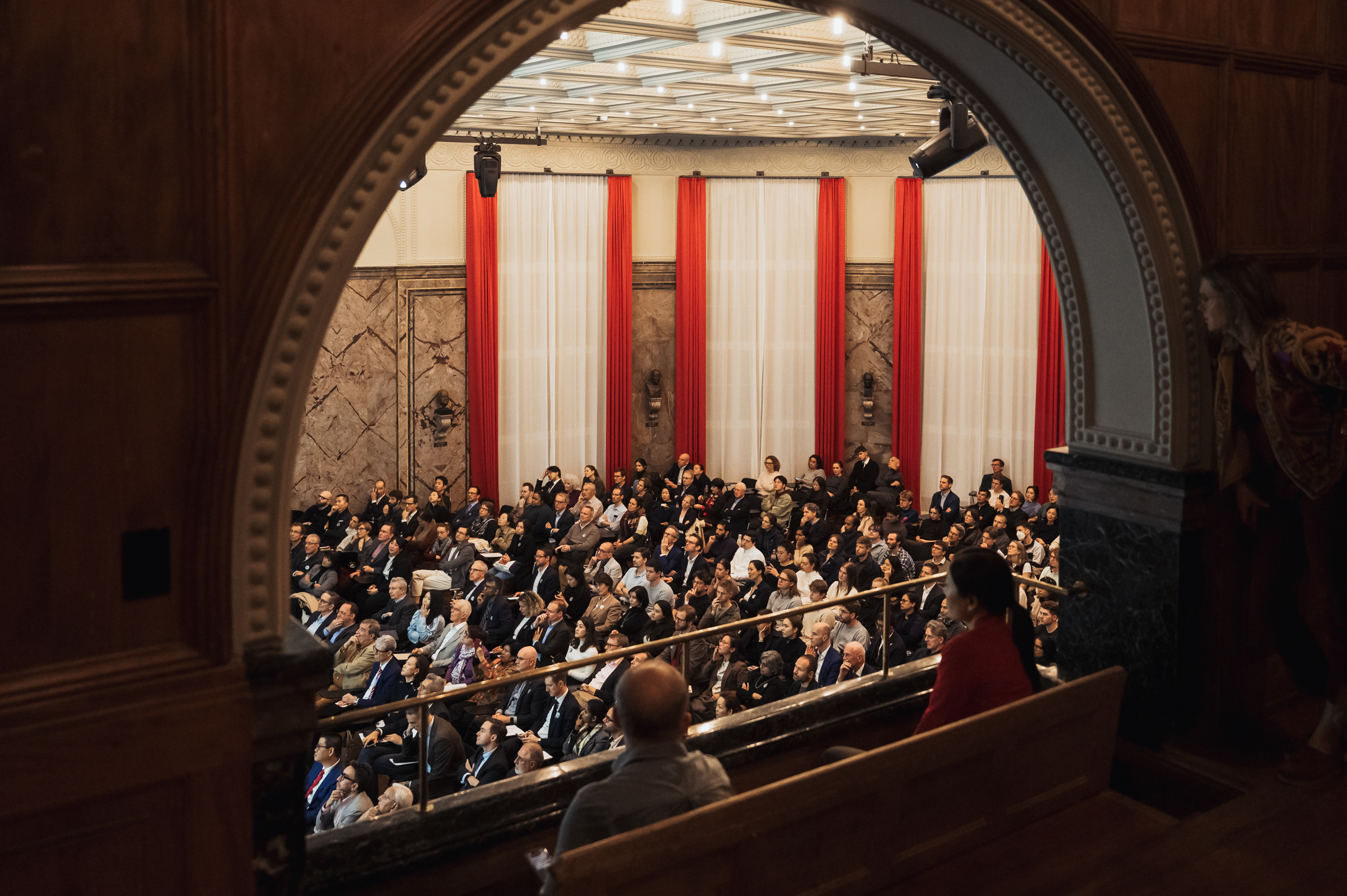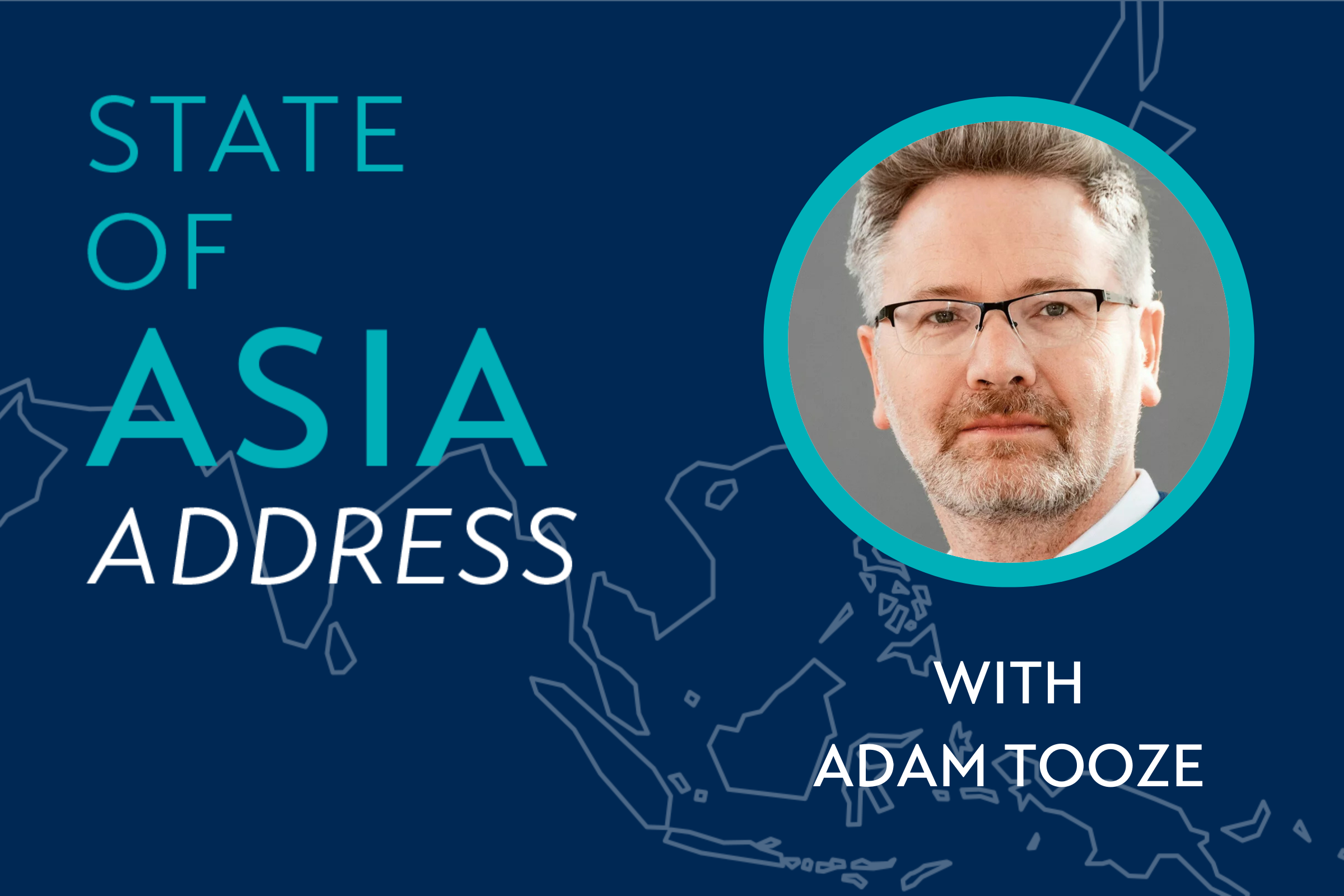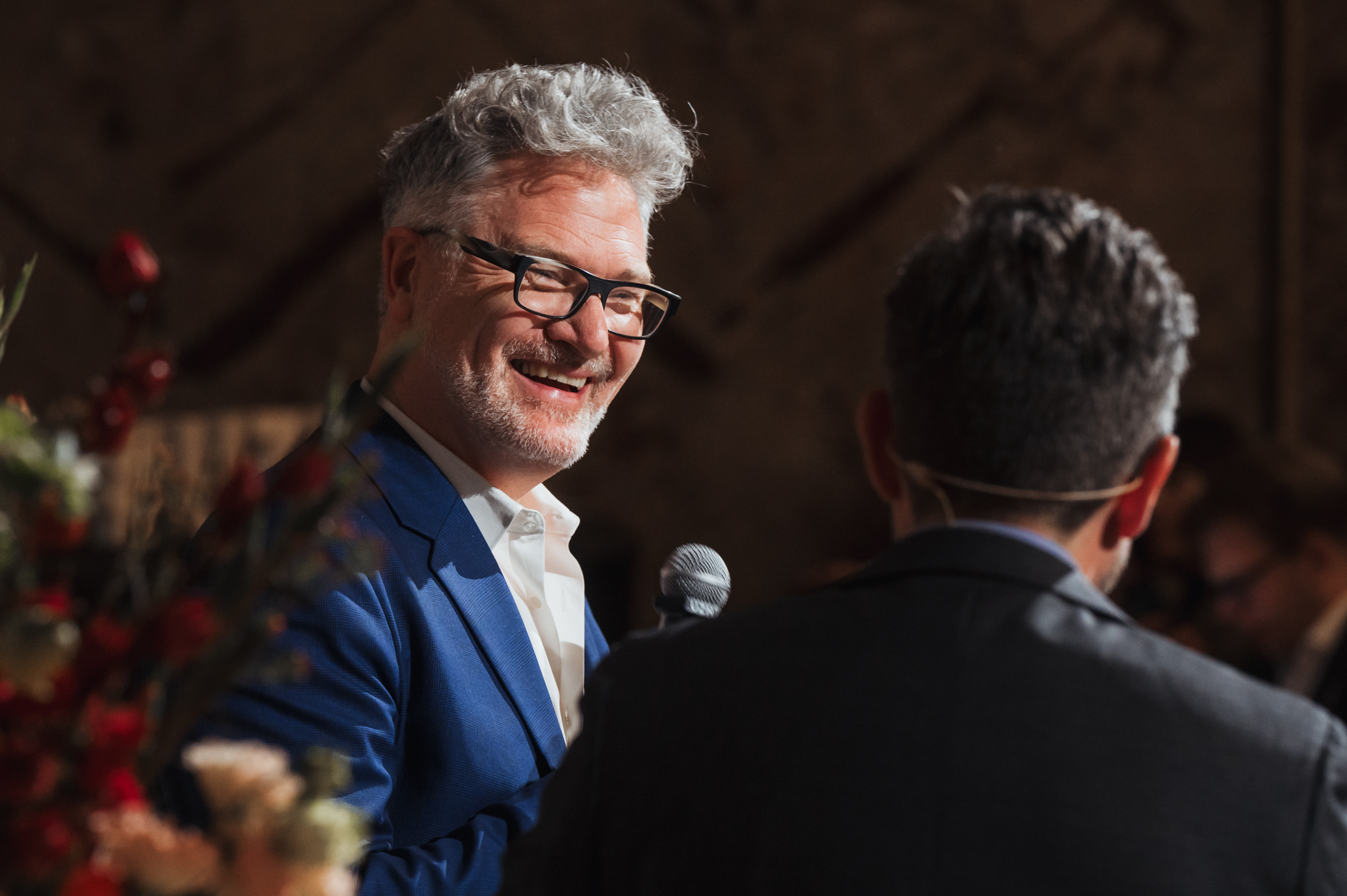State of Asia Address at UZH: “Asia’s position on the American election is more relaxed”
Just one day after the U.S. presidential election, UZH and Asia Society Switzerland hosted the second State of Asia Address in the historic UZH Aula Magna. Adam Tooze, Professor at the Columbia University, leading thinker and author of several renowned books, delivered a broad assessment on the key issues and challenges facing Asia today, provided a view into the future of the region, and analyzed the implications of the U.S. election results for Asia.
The age of polycrisis
There are multiple – often interconnected – challenges affecting the world simultaneously: Growing geopolitical fragmentation and polarization of societies around the world, effects of climate change, to name just a few. According to Tooze, this phenomenon can be described as a “polycrisis”. In his keynote speech, he explained what “polycrisis” means for Europe, Asia, and the world, especially after the election of Trump. For example, he noted the necessity for the West to acknowledge Asia's agency and diversity, moving beyond simplistic generalizations to understand the region's complex dynamics. He also highlighted that intra-Asian trade has been a significant driver of globalization, suggesting that the West must demonstrate its capacity to adapt to these shifting economic landscapes.
Fostering Asia competence
In his welcome remarks, UZH Vice President Christian Schwarzenegger underlined the importance of building Asia Competence at UZH: “In today’s polycrisis, Asian countries are a key part of any solution. This makes it imperative for us in Switzerland to better understand the region, and to engage with it more: Because what happens in Asia very much affects us. UZH is deeply committed to contributing to this understanding and exchange. As a leading research university in Europe, and the largest university in Switzerland, we are proud to offer a comprehensive range of more than 200 subject areas to 28’000 students. Offering this wide variety, we believe, is highly important: Because understanding – and addressing – the polycrisis requires deep knowledge across history, economics, culture, society, languages, and more. The humanities, long deemed less important than “hard” science, are a crucial aspect of this work. We are proud to be an important center of studies related to Asia across a wide range of disciplines.”
UZH is a founding member of Asia Society Switzerland. Both organizations share a commitment to build Asia competence, and to keep researchers, students, policymakers, industry representatives and the public in Switzerland open and connected to the world.
Viviane Gao
